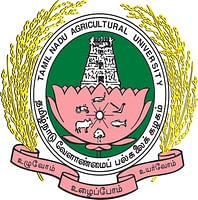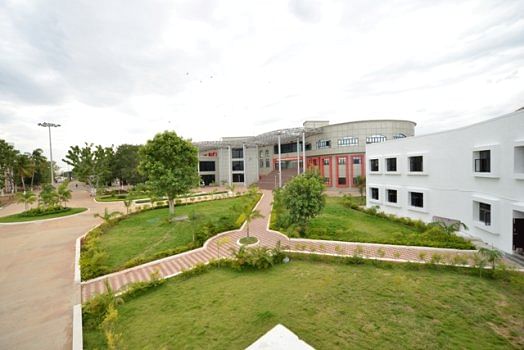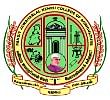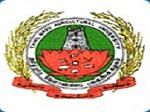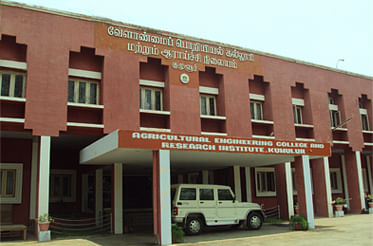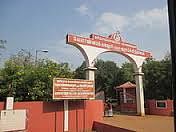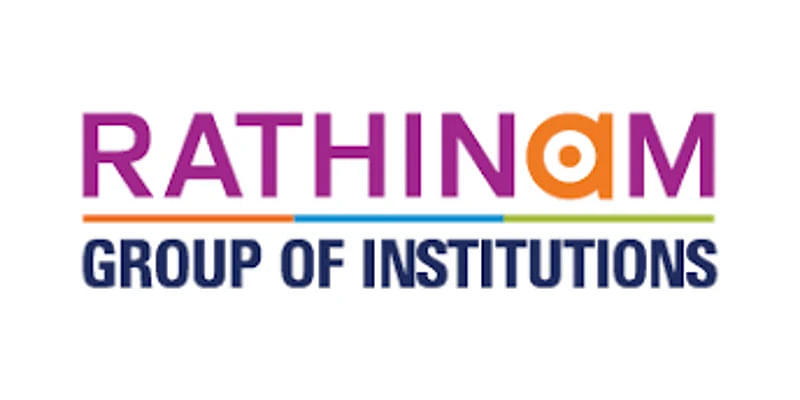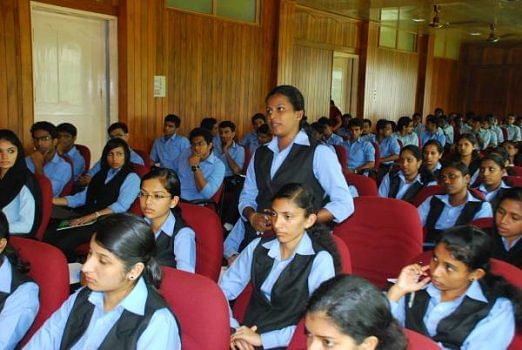“TNAU, a leading agricultural university, provides a robust academic base and research prospects for those interested in Agriculture and Allied Sciences. Yet, the limited placement opportunities may be a concern for aspiring students.”

Tamil Nadu Agricultural University (TNAU) stands as one of the largest Agricultural universities in India, encompassing a significant number of constituent and affiliated colleges throughout Tamil Nadu. With its main campus in Coimbatore, TNAU is renowned for its vital academic programs related to agricultural research.
Since its inception in 1906, the university has had a long and distinguished history of excellence for consistently delivering graduates well-prepared for careers. Its commitment to academic excellence, research and student development makes it a sought-after institution for students seeking a quality education. The university entices aspirants with its vast infrastructure and all-India study tours, which help them gain real-world experience.
Apart from drawbacks related to outdated facilities and lack of international collaboration, the university has maintained its excellent reputation. It provides the necessary resources for students to gain the required theoretical and practical knowledge that prepares them for the ever-evolving demands of the agricultural field.
World-Class Academics for Agricultural Courses
TNAU is a premier institute for higher education, which has maintained a high standard of academic excellence and has played a significant role in shaping the country's agricultural landscape. The university offers a plethora of courses at undergraduate, postgraduate and doctoral levels in the Agriculture, Horticulture, Forestry, Veterinary Science and Allied fields.
Its cutting-edge undergraduate programs are designed to avail students of a strong foundation in their chosen field, with curriculums that emphasise hands-on learning through practical coursework and field experiments.
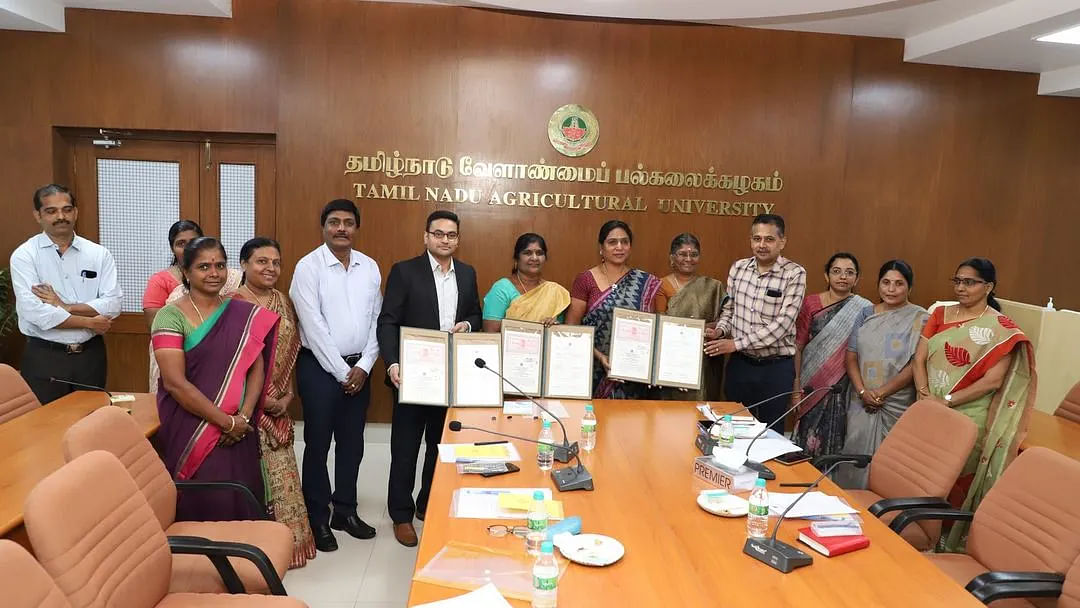
The postgraduate programs available at the university are curated to create highly skilled professionals in the different fields of Agriculture and Allied Sciences. The university's research facilities are world-class, allowing students to work with renowned scientists on unique research projects.
The top-rated programs offered by the university and their specifications are as follows.
- B.Sc (Hons) in Agriculture
- B.Tech in Food Process Engineering
- B.Tech in Energy & Environmental Engineering
- M.Sc Agriculture specialising in Agricultural Economics/ Agronomy/ Agribusiness Management/ Agricultural Education Extension/ Agricultural Meteorology/ Soil Science/ Plant Physiology/ Nano Science & Technology/ Microbiology.
- Diploma in Agri-Inputs
There is a strong focus on research at the university, with numerous research centres and laboratories on campus. The doctoral (PhD) programs offered by the university prepare students for a career in research and academia in Agriculture. It involves conducting research on specific topics in the field. Another interesting fact about academics at the university is that the subject curriculums and syllabi are updated regularly to reflect the latest developments and advancements in the field.
TNAU also provides opportunities for industrial exposure through visits and internships, which helps students get in touch with the latest products and be well-prepared for their careers with updated knowledge. However, with extended hours of practical sessions and theoretical classes, the academic workload at the university is heavier than most other courses.
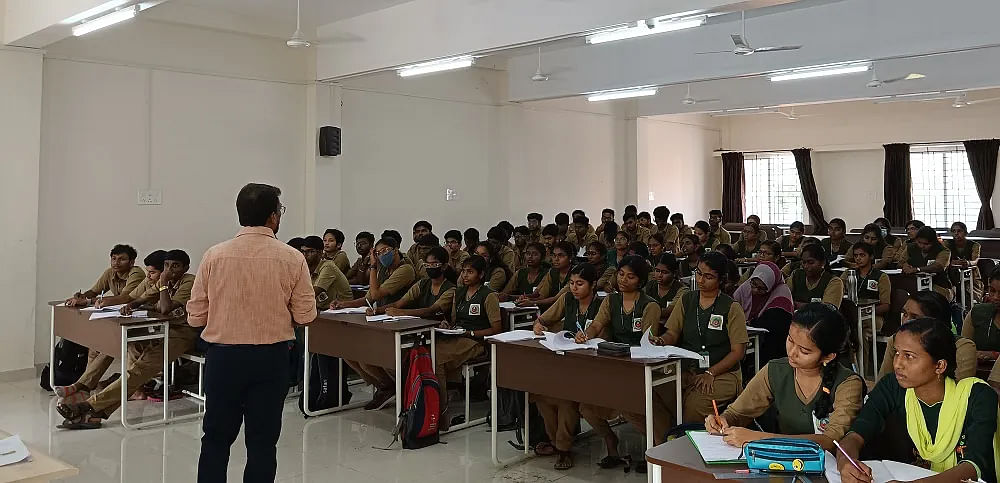
Attendance Policy
The university has a strict attendance policy for all students. As per the regulations, a minimum of 80% separate attendance in theory and practical classes of the concerned course is mandatory for students to appear for final examinations.
If a student’s attendance falls below the required percentage, they will be awarded an ‘E’ grade (incomplete) for the course and must re-register to complete it. This can lead to delays in graduation.
Affordable Fee Structure
The tuition fee for the courses offered at the university is nominal and affordable to all students from different backgrounds. The fees vary according to the course level, duration and specialisations. The course fees are different for undergraduate programs for B.Sc and B.Tech programs.
The average fee for a four-year B.Sc program is around INR 1,73,000 for the entire course, whereas for B.Tech programs, the fees range from INR 1,80,000 to INR 2,30,000. The diploma programs are for 3 years, and its average fee is INR 1,00,000.
As for the postgraduate programs, the average fee per semester for M.Sc programs is INR 25,000 and INR 30,000 for M.Tech programs. For doctoral-level programs, the semester-wise fee is INR 15,000. Besides the tuition fees, students are required to pay additional fees for registration, examination, library and hostel facilities. The fee structure is also subject to change based on the students’ categories.
Experienced & Knowledgeable Professors
The university is known for its highly qualified faculty with relevant experience, pivotal in providing top-notch agricultural education. These professors are experts in their fields, with many holding doctoral degrees and extensive research experience. The professors bring their deep knowledge and practical experience into the classroom, providing the students with a comprehensive understanding of the concepts and practices of agriculture. They are genuinely passionate about teaching and inspiring the next generation of agricultural professionals.
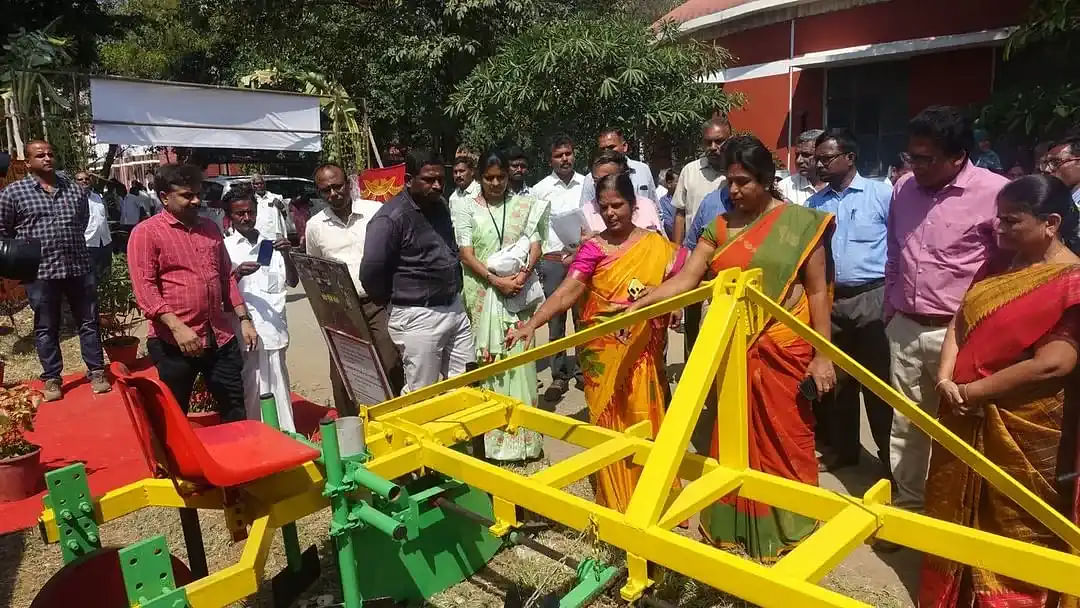
According to the students, most professors at the university are approachable and accessible to students, encouraging them to communicate with them after classes. They are always willing to answer questions, provide feedback and support students throughout their academic period.
The faculty members are actively involved in research, conducting studies in various fields. The research-oriented approach puts them at the forefront of their fields, allowing the teachers to incorporate the latest advancements into their teaching.
While most professors are excellent teachers, students have mentioned the lack of devising diverse teaching methods and technologies to cater to varied learning styles and enhance student engagement.
The student-led learning activities, such as presentations, group assignments and research projects, given to the students are limited, which hinders the further enhancement of student engagement, critical thinking and problem-solving skills.
Overall, the professors are a valuable asset to the university, contributing significantly to its reputation for excellence in agricultural education. Though some areas require improvement, the university is committed to bringing innovative methods to ensure that its professors are at the frontline.
Spacious & Well-Developed Infrastructure
The university has a well-developed and extensive infrastructure comprising adequate academic and research facilities. The university’s campus is over 500 acres of land, providing ample space for its various departments, educational infrastructure and recreational facilities. While most buildings are well-maintained, some older structures require modernisation and renovation to enhance their functionality and aesthetic appeal.
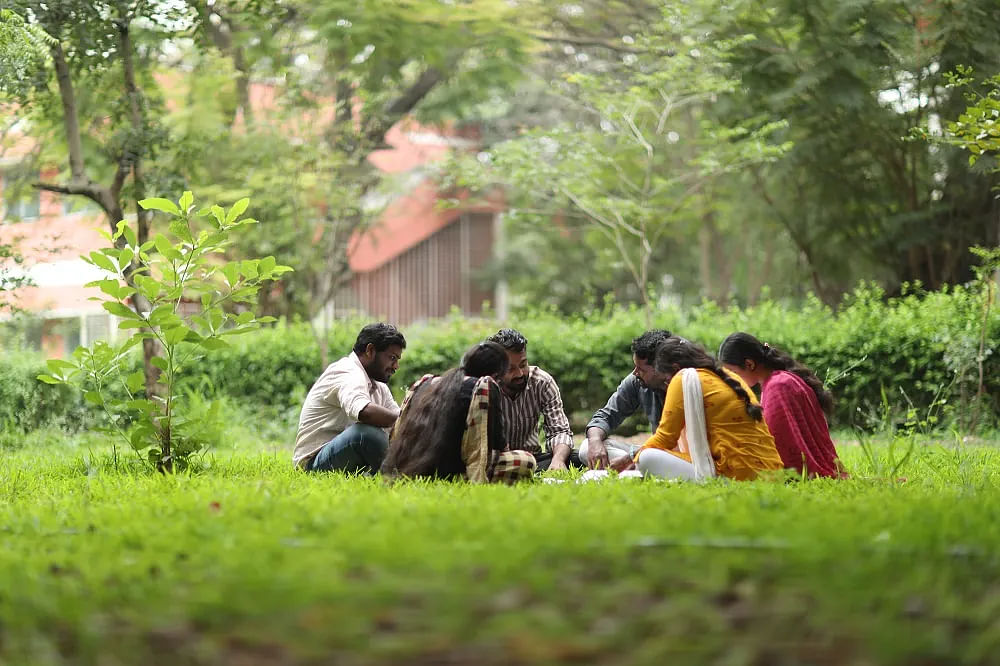
The sprawling campus provides a serene and conducive learning environment. Most classrooms at the university are equipped with modern teaching aids and technology, facilitating effective learning and engagement. The laboratories have the latest equipment and instruments to enhance the practical learning experience.
The university has a wide range of research facilities, including greenhouses, experimental fields, and specialised laboratories, supporting active research endeavours and enabling students to conduct cutting-edge research in various disciplines.
The library at the university is supposed to be a treasure trove of agricultural information, with a vast collection of printed and digital resources. The library provides a good atmosphere for students to read and study.
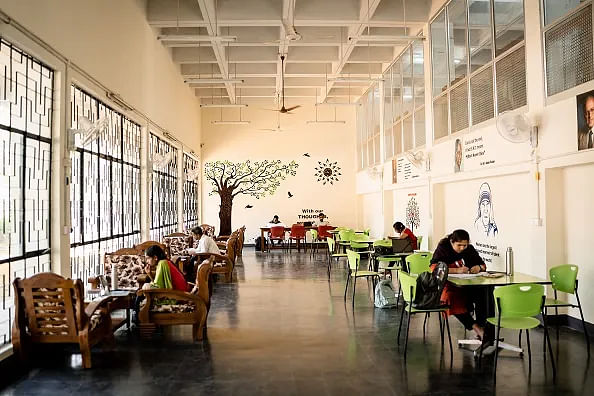
The university recognises the importance of student well-being and has various recreational facilities, such as sports grounds, gymnasium and other facilities, to promote physical fitness.
Despite having the facilities mentioned above, the university lacks IT infrastructure, such as Wi-Fi connectivity, computer labs, etc., making it difficult for students to access modern technology and digital resources. In addition to that, there is no proper maintenance and upkeep of the recreational facilities to ensure optimal usability.
Based on the reviews on online platforms, the students have recommended that the university incorporate sustainable infrastructure practices, such as rainwater harvesting and energy-efficient systems. Nonetheless, the university caters to the needs of agricultural students and is committed to improving and including modern facilities to provide an upgraded learning environment.
Comfortable Housing Facilities
The university provides spacious and comfortable hostel facilities within the campus for both boys and girls. The hostel rooms are well-furnished with basic facilities such as a bed, table, chair and cupboard. The rooms are well-lit and adequately ventilated, ensuring a pleasant and healthy living space. The hostels have essential amenities, such as sufficient water and electricity supply, laundry facilities, etc.
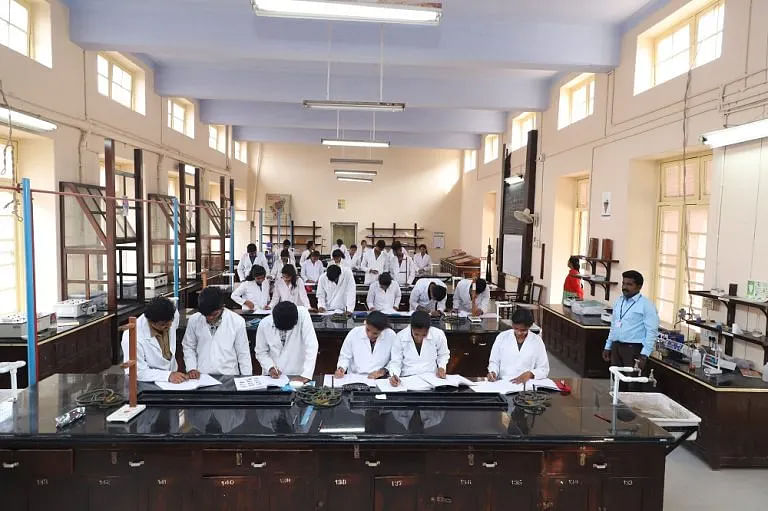
As the hostels are located within the campus premises, the safety and security of the students are ensured, with wardens and hostel staff readily available to assist students with any concerns or issues. The hostels have strict rules and regulations to ensure the safety of students and their belongings.
However, certain hostel facilities, such as bathrooms and common areas, require modernisation and renovation to improve the overall appearance and functionality. Similarly, students have mentioned that the hostels do not have proper Wi-Fi coverage, which affects the accessibility of the Internet for academic purposes.
Nutritious and timely meals are served hygienically in clean dining areas. The meals served cater to the various dietary needs of the students. Students are also provided with reading rooms, common areas and other recreational facilities for social interaction and relaxation after a difficult day. Overall, the hostel facilities are comfortable and secure for the students. Yet, certain areas require upgradation.
The hostel fees differ for boys and girls based on the room type and category. For boys, the hostel fees for single to quadruple occupancy rooms range between INR 2500 and INR 5000; for girls, it ranges from INR 3000 to INR 5,500.
Holistic Learning Experience
Although students are burdened with a heavy workload, they can participate in numerous extracurricular activities, social events and festivals on campus, giving them a wholesome learning experience beyond the classroom. Students have ample opportunities to develop their personal and professional skills by indulging in these activities.
The university has multiple clubs for technical, cultural, sports and literary activities. These clubs organise various events such as music competitions, drama productions, dance performances, inter-university competitions, debates, short-story writing competitions, technical workshops, seminars and other competitions for students to showcase their talents and skills. Not only do these activities provide a platform for the students to perform, but they also allow them to develop and improve their leadership skills.

The university conducts various social events and festivals yearly to celebrate different occasions and promote student camaraderie. Students can socialise, interact and create lasting friendships with their peers. The cultural fest at the university is a celebration of its rich heritage, with students from different departments coming together.
Every year, an entrepreneurship summit is conducted where industry leaders, investors and students are brought together to promote entrepreneurship and innovation in Agriculture.
Diversity on Campus
The university strives to recruit and admit a diverse student body, encompassing students from different cultures, religions, gender identities and socioeconomic backgrounds. This involves outreach efforts to underrepresented groups, scholarships, financially disadvantaged students and admission processes that consider an inclusive view of the aspirants’ qualifications.
The university has established gender equality committees to address gender-based issues, organise awareness campaigns and promote gender-inclusive practices. International students are also part of the student population at the university. It provides dedicated support services to these students, such as orientation programs, language assistance and cultural adaptation workshops.
Dress Code
The university has defined two sets of uniforms for field works and regular classes for undergraduate students. It also maintains a dress code policy that mandates modesty, professionalism and cultural sensitivity. Students must wear clean clothes and are restricted from wearing particular articles of clothing, such as shorts, skirts, short dresses, sleeveless shirts, tank tops, spaghetti straps, etc.
Constrained Placement Opportunities
Although it is one of the top Agricultural universities in the country, TNAU fails to provide successful placement opportunities to its students. According to the ranking organisations, only 220+ students out of 1550+ undergraduate and postgraduate students were placed during the placement drives held at the university.
Students are forced to approach private firms for jobs as not much can be expected from the university. The placement rates are not uniform, as only specific courses have the scope of getting good placements.
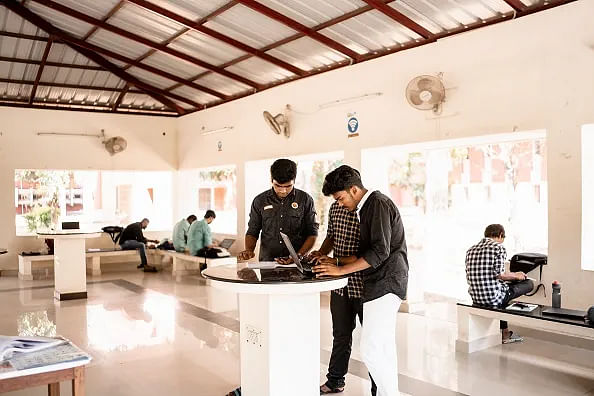
Although the university has strong connections with various industries, it still needs reach to attract recruiters from newer and emerging sectors. The placement cell at the university works on organising various events to connect students with potential employers, but it falls behind in inviting these newer companies.
Based on the previous years’ placement records, only nearly 50% of the graduates were offered jobs. The median salary package offered to undergraduate and postgraduate students was INR 3.62 LPA and INR 5.32 LPA, respectively.
Overall Impression of TNAU
As mentioned, TNAU is a well-respected agricultural university with a lot to offer students aspiring to pursue a career in agriculture and allied fields. The university’s solid academic status, industry linkages, diverse range of courses and developed infrastructure make it a good choice for students.
However, it is recommended that students connect with past graduates and educational experts before deciding to join the university, as it has potential limitations of placement opportunities and a relatively small alumni network. To make it easier for students to assess the university, the pros and cons of TNAU are tabulated below.
| Pros | Cons |
|---|---|
| One of the premier agricultural universities in the country | Located in a relatively more minor city |
| Affordable course fees | Lack or limited placement opportunities |
| Strong connections with various industries and sectors | Old-fashioned and poorly maintained buildings and facilities |
| Wide range of courses and programs related to Agriculture | Intense competition for internships and jobs |
| Adequate resources and facilities for research programs | No established alumni network. |
|
Vibrant campus life with a variety of clubs, organisations and extracurricular activities
|
Strict attendance policy |
*Source: tnau.ac.in and tnau_coimbatore Instagram
TNAU Reviews
4.2
>4-5 star
3
>3-4 star
1
>2-3 star
0
1-2 star
0
Academics & Faculty
4.3
Fees & Scholarships
3.9
Placements & Internships
3.9
College Infrastructure & Hostel Facilities
4.4
Clubs & Associations
4.5
Entrance Exams & Admissions : Marks based on intermediate education, Andhra Board of Intermediate Education. The total mark is 1000, and the cut off is 900.
 Verified
Verified
Placements & Internships : There are no internships available. The average salary is INR 25000 per month. Many seed companies and govt jobs are available.
Entrance Exams & Admissions : Passing in 12th standard with good marks. No entrance examination.
Fees & Scholarships :
Read More
 Verified
Verified
Placements & Internships : Internship options are not provided to the students at Tamil Nadu Agricultural University The average salary is INR 200000 per annum
Entrance Exams & Admissions : The e
Read More
 Verified
Verified
Placements & Internships : I did my internship for 3 months without any stipend. Some nationalised bank like HDFC and UCO banks and agri-based industries recruit students from Tamil Nadu Agricultural University campus.
Read More
 Verified
Verified
Placements & Internships : I did my Internship in South Korea, there was no stipend available. Placements are not that great and the package is also low the best way would be to acquire a master degree from Tamil Nadu Agricu
Read More
